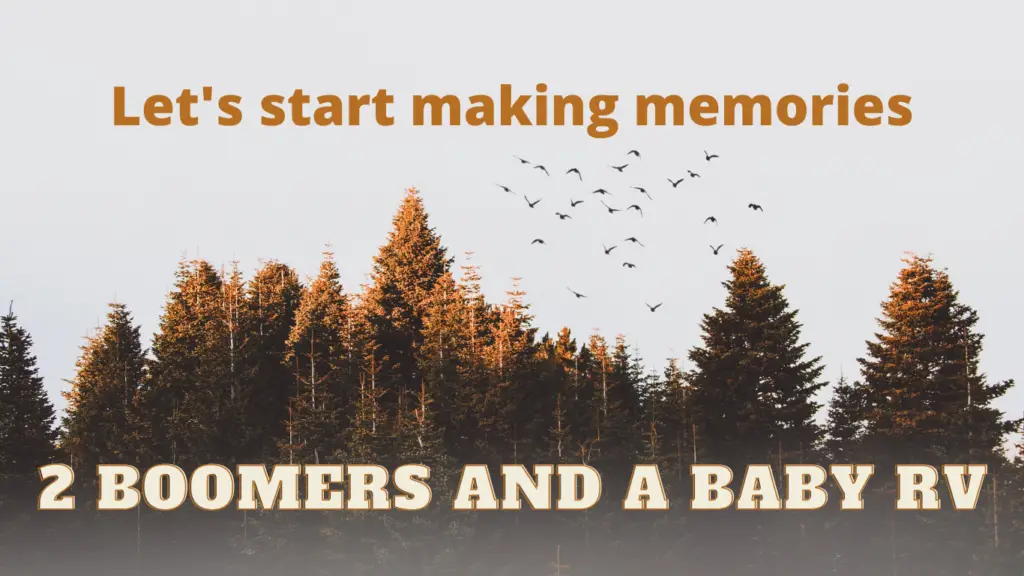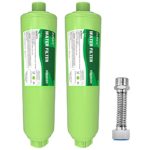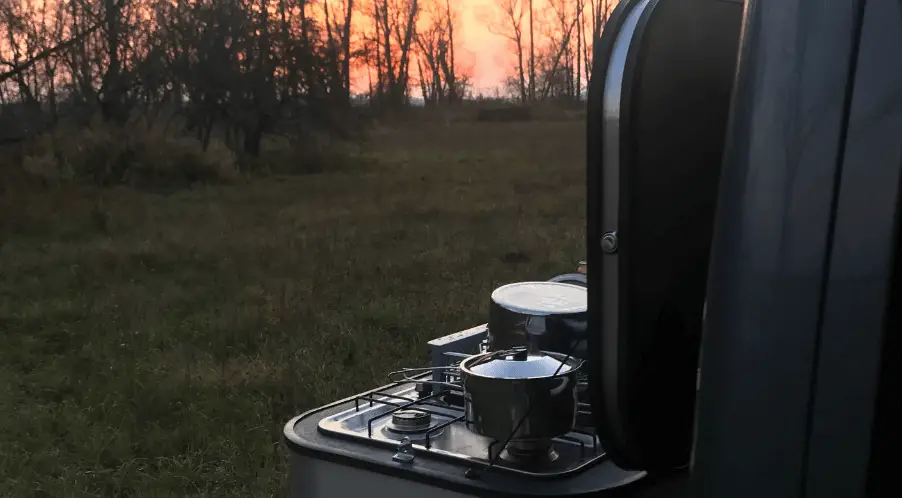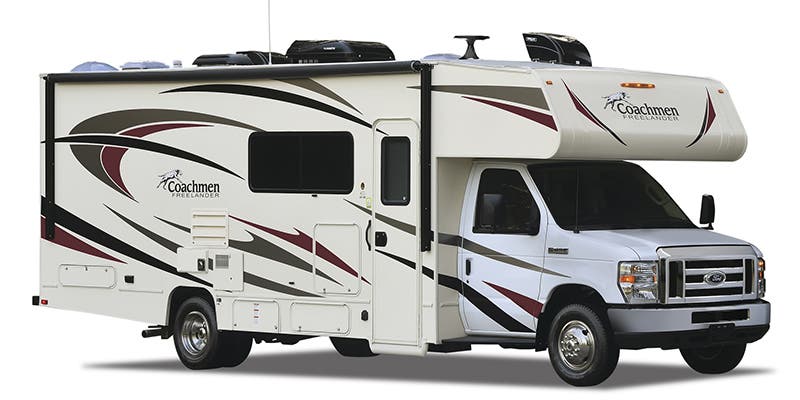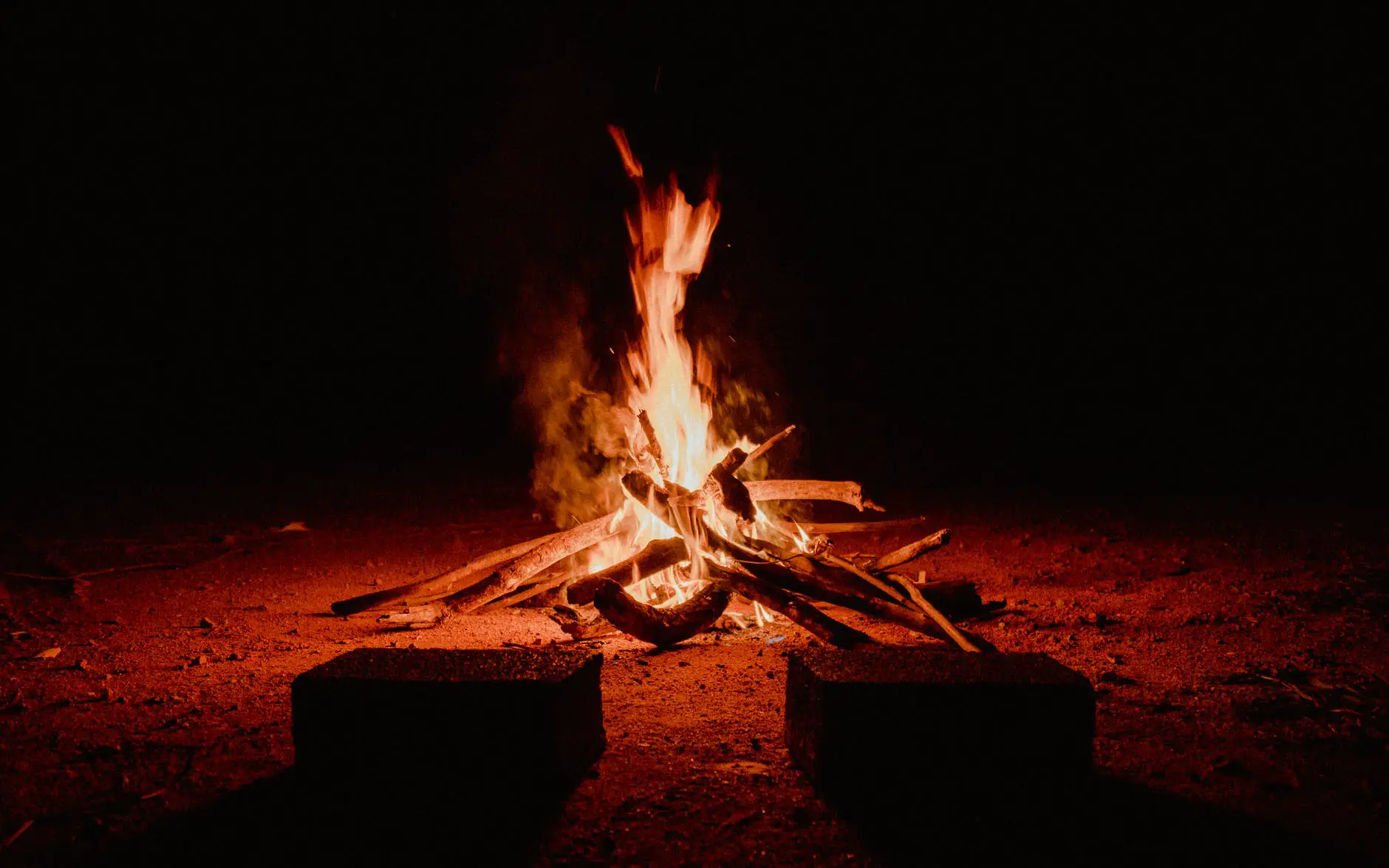I think we can all attest that we have at least once hooked up to city water and found dirty, smelly water coming out of our taps. Once you are out camping and hooked up to services it is hard to find options to solve this. I personally bring bottles of water for drinking, but we still need to wash dishes, shower, or use this water for many other things. The best way is to be prepared with a quality filter, So let us help in finding the best water filters for your RV.
What are the best water filters for an RV?
The best water filters for an RV are multi-stage filter systems that catch the most contaminants from the water passing through. The standard for water filters is their Micron rating, rating refers to the distance between pieces of filter media. This determines the size of particles that the filter will allow to pass through. A 50-micron rated filter will allow larger particles to pass through than say a 20-micron rated filter.
The lower the number, the more restrictive the filter, and this results in its ability to trap smaller particles. It is suggested that you use at least a 2-micron filter or smaller to get the best results. If you are using the water for drinking, a 0.2 or better is needed to remove bacteria (see below)
- It requires a 0.2-micron filter to remove all bacteria from the water.
- The average diameter of spherical bacteria is 0.5 to 2.0 microns.
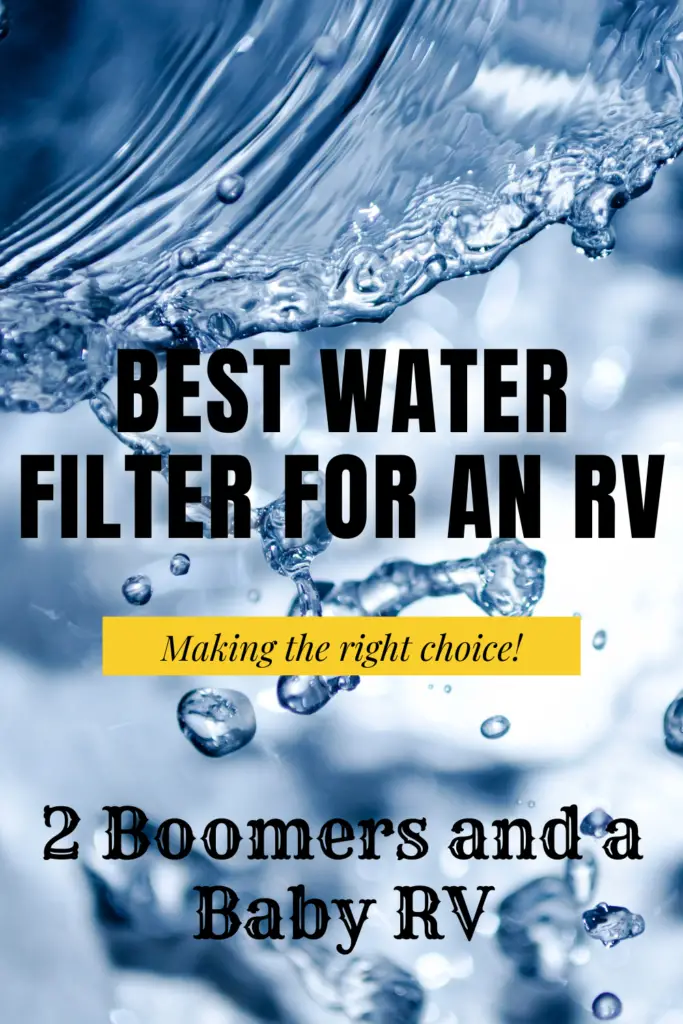
Example 3 stage filter process
1. 5-micron filter removes or reduces rust and sediment.
2. 0.5-micron coconut shell carbon block filter improves taste and removes or reduces chlorine, volatile organic compounds, and other contaminants.
3. VirusGuard filter removes or reduces bacteria like E. Coli, cysts like Giardia, and even viruses.
.jpg)
What should I look for when buying an RV water filter
Things to know
- Flow rate
- Filtration type
- Lifespan
- Microns filtered
- NSC rating
- Installation type/process

Here are some must-have items for your first time out – Don’t be left in the cold
Finding the best water filter for you
National Sanitation Certification
NSC rating is probably the single most important part of choosing a quality RV water filter. The main reason we get a filter in the first place is to have clean water to use or possibly drink. With a quality filter, you can remove most of the unwanted particles and contaminants from the water coming into your unit.
If you did not know already, let me tell you that many campground hookups are really not that dependable. So you can get many unwanted things from city water, like sand, dirt, heavy metals, or microscopic contaminants like bacteria and viruses.
Most water filters have an NSC rating of I, II, or III to let you know It’s been specially designed and constructed for quality filtration. They use established water treatment media and methods. Its construction materials are tested and documented to be appropriate for potable water use.
The micron rating refers to the distance between pieces of filter media. This determines the size of particles that the filter will allow to pass through. A 50-micron rated filter will allow larger particles to pass through than say a 20-micron rated filter.
To put it in perspective, It requires a 0.2-micron filter to remove all bacteria from water. This would also remove protozoa, giardia, fungus, and mold spores. But even 0.2 microns is still too large to remove virus bodies. The smallest virus bodies are about 0.02 microns (2o nanometers).
Types of RV water filters
- UV purification filters – neutralize living organisms like bacteria by exposing them to germicidal ultraviolet wavelengths. These microorganisms can be pathogenic and spread waterborne diseases to you and anyone else riding in your RV. UV lamps use radiation to scramble the genetic code of bacteria, rendering them unable to reproduce in the water.
- Reverse Osmosis system – one of the most comprehensive and powerful forms of water filtration on the market. Reverse osmosis forces water through a semipermeable membrane made of infinitesimal pores that strip dissolved salts and solids out of the water. A sediment pre-filter extracts debris from the water before it passes through the membrane and a carbon postfilter polishes the water’s taste after the process.
- Inline charcoal filters – improves the taste and odor of your water by removing chlorine and chloramines. So, This is a typical single inline budget filter.
- Canister filters (multiple filter types used)
- Sediment filters – remove dirt, debris, and grit from your water, as well as protects your RV’s plumbing, and extend the lifespans of your other filters.
What style filter do I need?
Inline single water filter
Using a simple inline filter as shown above is really only recommended for RV owners who use their rigs intermittently. They can be attached to a standard hose by simply screwing it on. I would still suggest bringing your own bottles of drinking water and just use for showers and dishwashing needs.
Inline canister filters
There are a few different types to choose from and can be customized to deal with your specific water problems. They have 1,2 or even a 3-canister filter depending on your needs as a camper. Some filters deal with odor and taste while others tackle problems such as sediment, lead, pesticides, and bacteria.
For a full-time RVer, it is suggested to invest in a quality multi-filter system to not only make the water smell and taste better but to also remove sediment and other contaminants.
These larger canister filters can be mounted on your RV or installed within one of the storage compartments for ease of use.
How long are RV water filters good for?
It really comes down to how often you use it and how much water is run through the filter at any given time. When purchasing a filter, see what the capacity is for that individual filter and use their recommendations for the lifespan. So, typically the single inline filters are good for 3 months while the larger canister filters can last a full 6-month camping season.
What are the best RV water filters for me?
Budget-friendly
Single inline canisters are super affordable, can last up to three months, and will remove the large sediment and chlorine odor. RVGUARD inline filters – NSF 42 certification for material safety, greatly reduces Chlorine, Bad Taste, Odor, and sediment, and provide you with clean and safe drinking water.
Service flow: 0.5 GPM
Capacity: up to 15000 gallons
Max working pressure: 60 psi
Operating temperature: 34F-100F
Lifespan: 3 months(single)
Microns diameter filter: 20
Remember to run water through the filter to remove extra carbon before use

Better 3-stage filter option
Hansing has a 25K gallon RV Water Filter System with 3 stages of filtration. Furthermore, this filter has a strong anti-clogging ability with a low-pressure drop and removes chlorine, chloramine, VOCs, and bad taste, and odor for RVs.
0.2-micron pleated polyester and 5-micron carbon block with KDF-55. Eliminates sediments, 99.5% of chlorine, chloramine, chloroform, volatile organic compounds, heavy metals, odors, bad tastes, and much more.

The next step is canister filtration
Clearsource Premium RV Water Filter System for inline filtration that can be permanently mounted on or in an RV. Their two-stage filter now features 0.2-micron protection, So which makes a better than all other in-line, single or dual-canister RV water filter systems on the market.
The First Stage is one carbon filter to improve taste and remove or reduce sediment, chlorine, VOCs, and other contaminants.
Second Stage 2 hospital-grade, the absolute-rated 0.2-micron filter removes or reduces bacteria like Legionella and E. Coli, and cysts like Giardia.
It is a one-two punch to give you clean, great-tasting water while hooked up to city water.

Best – 3 Stage canister for extra protection
CLEARSOURCE ULTRA RV WATER FILTER SYSTEM – NOW WITH VIRUSGUARD PROTECTION
1. 5-micron filter removes or reduces rust and sediment.
2. 0.5-micron coconut shell carbon block filter improves taste and removes or reduces chlorine, volatile organic compounds, and other contaminants.
3. VirusGuard filter removes or reduces bacteria like E. Coli, cysts like Giardia, and – unique to Clearsource – viruses.

Finding the best water filter for you
Can a single cylinder unit remove both sediment and odors?
Are Reverse Osmosis water filters worth it?
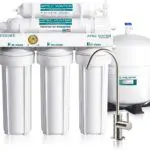
This multi-stage process pushes the water through a specialized semipermeable membrane that can catch both large pieces of sediment and also ones you are unable to see. This type of filtration system is believed to be able to reduce up to 99% of the contaminants in your water. More expensive than a standard filter, but much more effective too.
Does a water filter reduce water pressure?
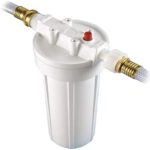
Size Matters!
The smaller the filter, the more restrictive the flow will be. This is the main reason smaller filters have a higher Micron rating. For the best water flow, choose a larger canister and clean it regularly to assure sediment is not restricting the flow. If you are experiencing flow problems, you may need to clean or replace your filters.
Conclusion
If you are heading out on a trip, the water filter should be a must-have and not an afterthought. Sketchy water is a mainstay at a lot of campgrounds with well water and even city connections. The last thing you want to do is get connected and find out how poor the water quality is and not have some kind of filter to improve your situation.
Whichever filter to land on, it will need to be maintained to provide the taste, smell, or protection you are looking for. So, plan ahead and be prepared for whatever comes at you, and things will come at you in this crazy lifestyle you have chosen.
Imagine
Close your eyes for a moment and just think about this. It’s sunrise, and you roll out of your RV, morning air feeling brisk, fire from the night before taking its last breath as it’s trying to reignite. You find your favorite chair on the site, turn it to look out over the lake, and nestle in to relax. Birds chirping and fish jumping as the new day begins. This is what it’s all about!………. Now imagine a hot cup of coffee in your hand. Life just got so much better!
If you are a coffee lover, please check out our sister page @theGRIND.blog for any coffee needs
Finding the best water filter for you
Here are some must-have items for your first time out – Don’t be left in the cold
